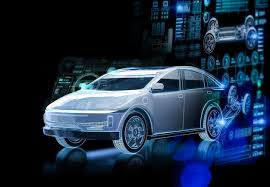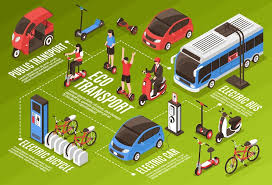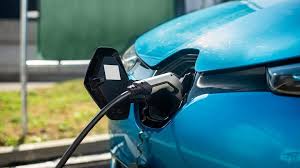E-Automobiles
Electric automobiles, or electric
vehicles (EVs), are becoming increasingly popular due to
their:
- Environmental benefits: Reduced
greenhouse gas emissions and lower carbon
footprint.
- Lower operating costs: EVs can
save owners money on fuel and maintenance.
- Improved performance: EVs often
have excellent acceleration and smooth, quiet operation.

Some popular electric vehicle
models include:
- Tesla Model 3: Known for its
range, performance, and Autopilot features.
- Nissan Leaf: A more affordable
option with a range of up to 226 miles.
- Chevrolet Bolt: Offers a
spacious interior and a range of 259 miles.
Electric automobiles, or electric
vehicles (EVs), offer several benefits, including:
- Environmental benefits: Reduced
greenhouse gas emissions and lower carbon footprint,
contributing to a cleaner environment.
- Lower operating costs: EVs can
save owners money on fuel and maintenance, making them a
cost-effective option.
- Improved performance: EVs often
have excellent acceleration and smooth, quiet operation.

However, some challenges need to
be addressed:
- High upfront costs: EVs can be
more expensive than traditional gasoline-powered
vehicles.
- Limited range and charging
infrastructure: Range anxiety and scarce charging stations can
make long trips more difficult.
- Battery technology: Batteries
are heavy, expensive, and require frequent charging, which can
impact their practicality.
To overcome these challenges,
potential solutions include:
- Enhancing charging
infrastructure: Increasing the number of charging stations and
improving charging speed.
- Battery swapping techniques:
Allowing drivers to quickly swap batteries instead of charging
them.
- Government incentives: Offering
tax credits or subsidies to encourage consumers to purchase
EVs.

Some countries are promoting EVs
by setting targets, such as:
- China's goal: Having electric
vehicles account for 20% of total new car sales by 2025.
It seems like you're interested in exploring more about electric vehicles (EVs). Here are some key points about EVs:
Benefits of Electric
Vehicles
- Environmental Benefits: EVs
produce zero tailpipe emissions, reducing greenhouse gas
emissions and air pollution in urban areas.
- Lower Operating Costs: EVs are
generally cheaper to run, with lower fuel costs (electricity is
often less expensive than gasoline) and lower maintenance
costs.
- Improved Performance: EVs have
excellent acceleration and smooth, quiet operation.
Types of Electric
Vehicles
- Battery Electric Vehicles
(BEVs): Powered exclusively by electric motors, with
electricity stored in onboard batteries.
- Plug-in Hybrid Electric
Vehicles (PHEVs): Combine electric motors with internal
combustion engines, allowing for extended range.
- Hybrid Electric Vehicles: Use
electric motors and internal combustion engines, but cannot be
plugged in for charging.

Charging and
Infrastructure
- Charging Stations: Public
charging infrastructure is expanding, with many countries
investing in charging networks.
- Battery Swapping: Some
companies are exploring battery swapping technology, which
allows drivers to quickly replace depleted batteries with fully
charged ones.
History and
Development
- Early Adoption: Electric
vehicles were popular in the late 19th and early 20th
centuries, but declined with the rise of gasoline-powered
cars.
- Modern Resurgence: Advances in
battery technology and growing concerns about climate change
have led to renewed interest in EVs ¹.